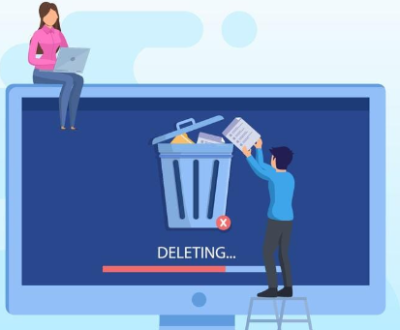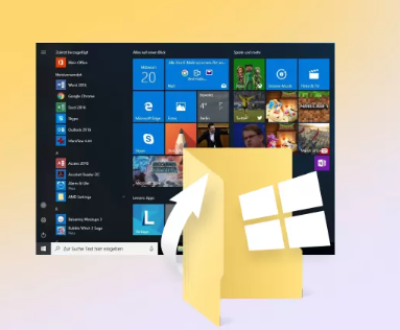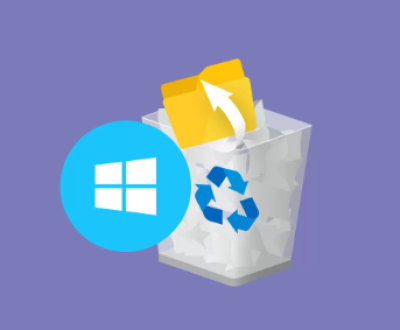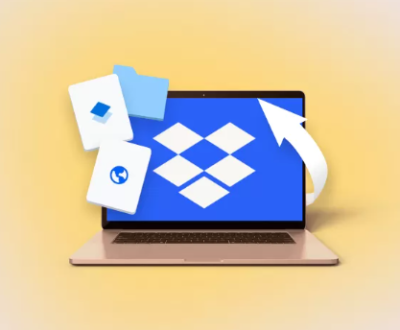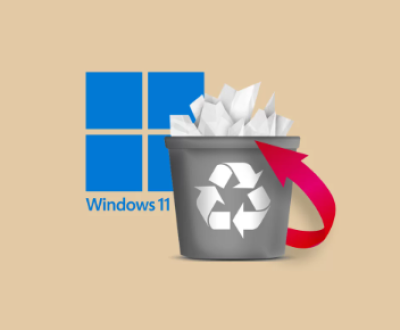When disaster strikes and your precious data is lost, panic often follows. Whether it’s a failed hard drive, an accidental deletion, or damage from fire or water, the thought of losing important files can be devastating. Fortunately, residents and businesses in San Diego have access to a wide range of data recovery options. From local professionals with state-of-the-art equipment to nationwide services with drop-off locations throughout the city, there’s a solution for nearly every data disaster.
Data recovery is the process of retrieving inaccessible, lost, corrupted, or formatted data from storage devices. These devices can include hard disk drives (HDDs), solid-state drives (SSDs), USB flash drives, SD cards, smartphones, servers, and RAID arrays.
Loss of data can result from physical damage (e.g., dropped hard drives, water damage), logical failures (e.g., accidental deletion, software corruption), or hardware malfunctions (e.g., read/write head failures or PCB damage).
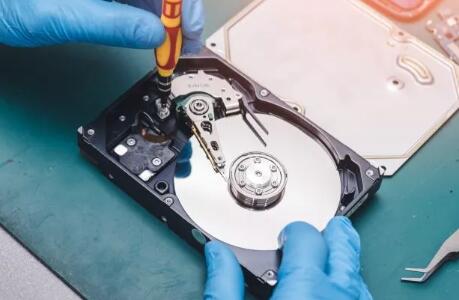
The primary goal of data recovery is to retrieve as much usable data as possible and return it in a usable format, often on a new storage device.
Common Causes of Data Loss in San Diego
Being a coastal city, San Diego presents some unique environmental challenges that can lead to data loss:
Humidity and Salt Air: Proximity to the ocean means devices are exposed to humid, salty air which can corrode internal components over time.
Power Surges: Seasonal thunderstorms or rolling blackouts can lead to unexpected power outages or surges that corrupt files or damage devices.
Heat Exposure: High summer temperatures can cause drives to overheat, leading to failure.
Natural Disasters: Wildfires or earthquakes may result in physical damage to storage devices, especially in homes and businesses without adequate protection.
In addition to environmental factors, user errors like accidental deletion, formatting the wrong drive, or malware infections are also prevalent causes.
Types of Devices San Diego Recovery Experts Handle
A skilled data recovery technician in San Diego can work on a wide array of devices, including:
Laptops & Desktops (Mac and PC)
External Hard Drives
RAID Arrays and Servers
Solid-State Drives (SSDs)
USB Flash Drives
Mobile Phones (Android and iOS)
SD Cards and MicroSD Cards
Digital Cameras and Drones
NAS Systems and Cloud Backup Services
Whether you’re a business owner who just lost years of accounting data or a photographer with a corrupted SD card full of wedding photos, there’s likely a specialist in San Diego who can help.
How the Data Recovery Process Works
Understanding how the data recovery process works can ease your anxiety and help set realistic expectations. Here’s a general breakdown:
1. Initial Consultation
Most services offer a free consultation. You’ll explain the problem, the type of device, what data is important, and any steps already taken. In many cases, you’ll drop off the device or ship it to the provider.
2. Evaluation and Diagnosis
Technicians assess the damage using diagnostic tools to determine what caused the failure and what level of recovery is possible. This may involve opening the drive in a cleanroom environment if physical damage is suspected.
3. Price Quote and Authorization
Once the evaluation is complete, you receive a quote and estimated time frame. Recovery efforts begin only after you approve the service.
4. Data Recovery
This step involves using proprietary software, hardware tools, and sometimes physical repairs to extract data. Depending on the damage, this can take anywhere from a few hours to several weeks.
5. Data Delivery
Recovered data is typically transferred to a new external hard drive or sent via secure download. In some cases, only partial data is recoverable, and you’ll be informed of what was salvaged.
What Does Data Recovery Cost in San Diego?
Data recovery pricing in San Diego can vary widely depending on the severity of the issue and the type of device. Here’s a general breakdown of common costs:
Logical Recovery (e.g., deleted files): $100 – $600
Mechanical or Physical Recovery (e.g., clicking hard drive): $500 – $1500+
RAID and Server Recovery: $800 – $3000
Mobile Device Recovery: $300 – $1200
Evaluation/Diagnostic Fee: Often free, but can range from $0 – $100 if the service is more involved
Be wary of services that advertise flat rates for all recoveries—every case is different, and pricing should reflect the complexity and tools required.
Local vs. National Data Recovery Companies
When choosing a provider in San Diego, you’ll encounter both locally operated shops and large national firms with branches in the area. Here’s how they compare:
Local Providers
Pros: Personalized service, often faster turnaround, direct communication with technicians
Cons: May lack high-end cleanroom facilities or advanced equipment
National Services with Local Drop-off
Pros: Specialized tools, Class 100 cleanrooms, high recovery success rates
Cons: Can be more expensive, slower due to shipping and handling
For rare or highly valuable data, consider going with a firm that offers Class 100 cleanroom services even if they’re not local.
Tips for Choosing the Right Data Recovery Service in San Diego
Selecting the right recovery expert can mean the difference between getting your files back or losing them for good. Here’s what to look for:
1. Certification and Cleanroom Facilities
If your data recovery involves physically opening a hard drive, it must be done in a certified cleanroom. Dust particles can destroy delicate platters. Look for providers with Class 100 ISO 5 cleanrooms.
2. No Data, No Charge Policy
Reputable recovery services often operate on a “no data, no fee” basis, meaning you only pay if your data is successfully recovered.
3. Positive Customer Reviews
Check Yelp, Google Reviews, and Better Business Bureau ratings. Look for consistent praise on transparency, speed, and customer service.
4. Transparent Pricing
Beware of bait-and-switch tactics. Reliable providers will give you a detailed, upfront quote after evaluation.
5. Security Protocols
Your data is private—make sure the company has clear privacy and confidentiality policies.
Top-Rated Data Recovery Services in San Diego
While this list is not exhaustive, here are several providers that have built strong reputations:
1. Secure Data Recovery Services
Offers 24/7 emergency services
Certified cleanroom
Specializes in RAID and server recovery
2. SalvageData Recovery
Offers free evaluations
Industry-standard security
Drop-off location in downtown San Diego
3. File Savers Data Recovery
Excellent customer service
Works on phones, flash drives, and cameras
Fast turnaround options available
4. San Diego Data Recovery
Locally owned and operated
Great for individuals and small businesses
Reasonably priced logical recoveries
5. DriveSavers (via local courier)
One of the most trusted names nationally
HIPAA and SOC II compliant
Services Apple-certified devices
When to Attempt DIY Recovery (And When Not To)
You might be tempted to try DIY recovery tools—especially when the data isn’t mission-critical. Here’s a quick guide:
Safe to Try at Home:
Accidentally deleted files
Formatted USB drives or SD cards
Files lost due to software issues
Tools You Can Use:
Recuva
PhotoRec
EaseUS Data Recovery Wizard
Never DIY If:
Your hard drive is making clicking or grinding sounds
There’s been physical damage (fire, flood, drop)
It’s a RAID array or server
It’s a work computer with sensitive data
Using recovery software on physically damaged drives can make recovery impossible, so always consult a professional when in doubt.
Data Recovery for Businesses in San Diego
San Diego is home to many startups, research labs, law firms, and medical facilities. Business data loss can be catastrophic, affecting payroll, legal compliance, or client records.
Many recovery firms in the area offer:
On-site emergency recovery
24/7 support
RAID and server recovery
HIPAA-compliant protocols for medical data
Chain of custody documentation
If your business relies on mission-critical data, it’s wise to have a pre-established relationship with a trusted recovery provider.
How to Prevent Future Data Loss
After your data has been recovered (and you’ve breathed a sigh of relief), take steps to prevent a repeat:
Use Cloud Backups: Google Drive, Dropbox, iCloud, and OneDrive all offer automated cloud syncing.
Invest in External Backups: Use the 3-2-1 backup rule—3 total copies of data, 2 local (on different devices), 1 offsite.
Power Surge Protectors: Use quality surge protectors or uninterruptible power supplies (UPS).
Regular Health Checks: Run diagnostics on your drives periodically using tools like CrystalDiskInfo or SMART status monitors.
Avoid DIY Repairs: Don’t open a failed hard drive or delete partitions unless you know exactly what you’re doing.
Losing your data can be stressful, but living in San Diego puts you within reach of some of the best recovery services in the region. Whether it’s a simple deleted file or a complex RAID failure, help is available and often faster than you think.
The key is acting quickly, choosing a qualified provider, and avoiding risky DIY fixes. With the right help, there’s a good chance your photos, documents, and critical business files can be brought back to life.
About us and this blog
Panda Assistant is built on the latest data recovery algorithms, ensuring that no file is too damaged, too lost, or too corrupted to be recovered.
Request a free quote
We believe that data recovery shouldn’t be a daunting task. That’s why we’ve designed Panda Assistant to be as easy to use as it is powerful. With a few clicks, you can initiate a scan, preview recoverable files, and restore your data all within a matter of minutes.

 Try lt Free
Try lt Free Recovery success rate of up to
Recovery success rate of up to

